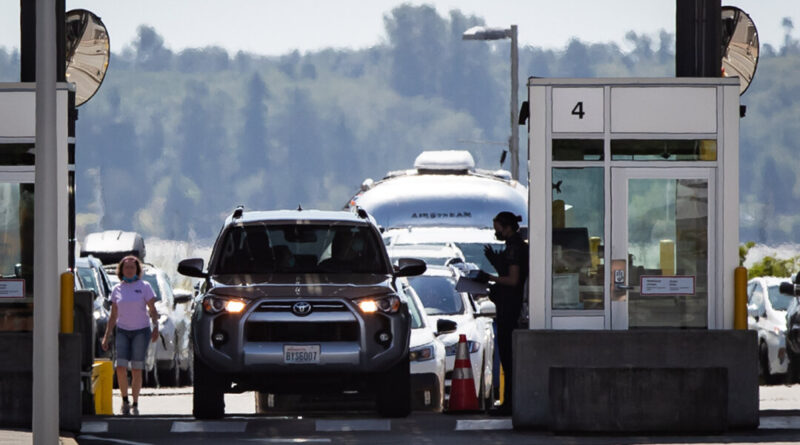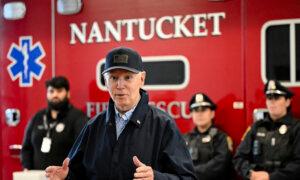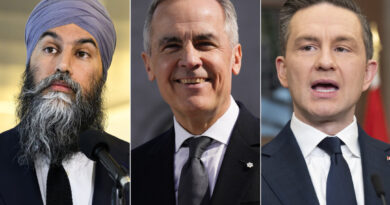Premiers’ Plans for Border Security in Response to US Tariffs Threat
Provincial premiers say they are in agreement regarding the necessity of a unified approach to address Donald Trump’s tariff threat, but they have different strategies for dealing with border security concerns.
Borders are under federal jurisdiction, and in some provinces, the RCMP is responsible for provincial law enforcement. This limits some premiers’ options for enhancing border security, leaving pressure on Ottawa as one of the few solutions.
Provinces like Ontario and Quebec have their own police forces, and the premiers there are exploring ways to increase their involvement.
Provinces also have varying realities related to the issues raised by U.S. President-elect Trump, who linked his 25 percent tariff threat against Canada and Mexico to halting the flow of illegal immigration and drugs such as fentanyl into the United States.
Diverse concerns and priorities influence how provinces have responded to Trump’s threat and the potential economic impact of tariffs on their respective economies. Quebec, for example, has seen a rise in illegal border crossings in recent years, while British Columbia has been heavily affected by the opioid crisis.
Premiers Meeting
Ontario Premier Doug Ford has called for a special meeting of first ministers to discuss the tariff threat from Trump.
Ford urged Ottawa to take a more “proactive” stance on border security by cracking down on illegal border crossings and the trafficking of firearms and illicit drugs like fentanyl, to avoid the economic consequences of Trump’s tariffs.
On the same day as the first ministers’ meeting, Ford announced a meeting with the U.S. Drug Enforcement Agency, the Canada Border Services Agency (CBSA), and the OPP.
Alberta Premier Danielle Smith also proposed using provincial law enforcement to bolster border security, suggesting the Alberta Sheriffs Branch could play a role in these efforts.
“We are ready to deploy our resources under our jurisdiction to enhance security along our border, which adjoins Montana,” Smith explained.
She emphasized that the issues raised by Trump – illegal immigration and drug smuggling – are concerns her government shares and mentioned plans to collaborate with Montana officials for increased coordination and information sharing.
‘Positive Conversation’
Following the first ministers’ meeting on Nov. 27, Legault expressed satisfaction with the feedback received from Deputy Prime Minister Chrystia Freeland and Public Safety Minister Dominic LeBlanc on the government’s strategy to tackle the tariffs threat.
LeBlanc mentioned discussions on potential investments to support the RCMP and CBSA.
“It was a productive conversation, and we will continue working with premiers to establish a unified Canadian approach to border security, national security, and orderly immigration,” LeBlanc affirmed during a press conference in Ottawa.
Manitoba Premier Wab Kinew advocated for increased investments in the RCMP after the first ministers’ meeting, citing the crackdown on drug trafficking as a measure that could be positively received in the U.S. and enhance community safety in Manitoba.
BC Premier David Eby echoed concerns about narcotics, particularly fentanyl, like Trump did. In an interview with CTV News on Nov. 28, he addressed the need to tighten regulations on the precursor chemicals for fentanyl, originating from Mexico and China, that have led to numerous fatalities in the province and nationwide.
Eby pledged his province’s commitment to secure the border and stated he would not hesitate to convene the legislature if necessary.
However, Eby noted that border security falls under federal jurisdiction, stating, “We already assume many responsibilities of the federal government. I am not eager to take on this additional one,” emphasizing the need for federal support.
Saskatchewan Premier Scott Moe reiterated the importance of reinforcing borders to address illegal immigration and drug issues in communities.
New Brunswick Premier Susan Holt stressed the necessity for Canada to assure the U.S. of strong border measures.
“We need to assure the Americans that border security in Canada is a priority and is managed more effectively than in some of our other American partners,” she emphasized in an interview with CTV News on Nov. 27.
Jennifer Cowan contributed to this report.





